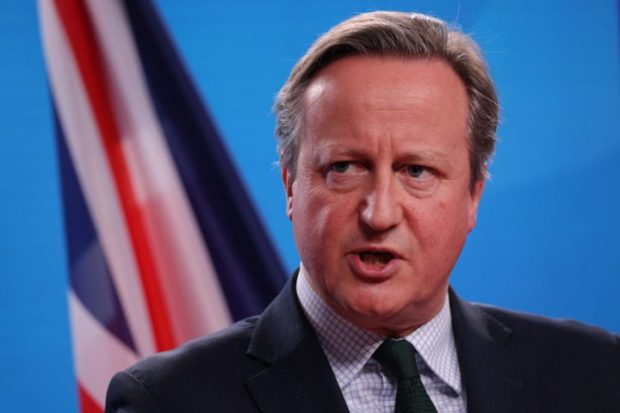The law on gender is a mess and could either be about to get much clearer or messier still. The Scottish government is being taken to court by feminist campaigners over its plans to increase women’s representation on public boards. That’s not the sort of thing feminist campaigners typically take governments to court over so you might have already guessed what’s coming next. For Women Scotland (FWS) believes the SNP is using the Gender Representation on Public Boards Act 2018 (GRPBA) to change the law on gender recognition by stealth. That’s already too many acronyms, which is always a sure sign that a given law is a bad idea.
The GRPBA is, on its face, standard feminist fare: a law to correct what is seen as an insufficient number of women on public boards in Scotland. The problem comes, as it seems to do with extraordinary regularity these days, with how the Scottish government is choosing to define ‘women’. The statutory guidance says that transwomen without a gender recognition certificate will be considered women provided they meet three conditions:
- They enjoy the protected characteristic of ‘gender reassignment’ under the Equality Act 2010;
- They are proposing to undergo or have already undergone a process to change their sex from male to female, and;
- They are living as women.
Where it gets more complicated is a section in the guidance that states: ‘The Act does not require an appointing person to ask a candidate to prove that they meet the definition of woman in the Act.’ This is what FWS suspects is a back-door means of making legal changes that can’t be done openly without bringing too heavy a political price.
Last month, I warned that the Scottish government could find itself in court as a result of all this. FWS had obtained a legal opinion from prorogation case QC Aidan O’Neill and had instructed solicitors to write to the Scottish government to caution against overstepping ministers’ legal authority under the devolved powers. However, just over a week ago, the Scottish government replied insisting the GRPBA and its statutory guidance were ‘within legislative and devolved competence’. As I suspected, FWS has now announced that a petition for judicial review has been lodged and accepted by the Court of Session, the highest civil court in Scotland.
FWS will advance a six-pronged argument in court. First, that the Scottish government is exceeding its competency under devolution by legislating in the reserved area of equal opportunities. Second, that ministers are straying beyond their lawful powers in conflating the protected characteristics of ‘sex’ and ‘gender reassignment’. Third, that the SNP executive is using a definition of ‘woman’ that includes people defined as male by the Equality Act 2010. Fourth, that in doing so they are going ‘against the very grain’ of the 2010 Act and wider anti-discrimination law. Fifth, that this application of the GRPBA is incompatible with EU law, which provides only for ‘positive action’ in relation to sex, not gender reassignment. Sixth, that the Holyrood government failed to conduct a proper equality impact assessment.
In a statement, the Scottish government said: ‘It would not be appropriate to comment on a live court action’. Meanwhile, Trina Budge, a spokeswoman for FWS, says: ‘It is untenable that “woman” is defined differently across the laws of Scotland. This case is vitally important to stop the erosion of women’s rights in law and we are grateful for the public support in bringing this action to hold the government to account.’
We will have to wait and see where the Court of Session comes down on this matter. What we can say at this juncture, and with some frustration, is that both gender-critical women and trans people are being put through the wringer in Scotland and elsewhere by governments, parliaments and public bodies determined to pursue radical changes to the law without open and honest consultation with the general public.
The worst of it is that, in many cases, it’s clear ministers and lawmakers have no understanding of trans rights and the legal changes they are legislating beyond another item on a tribal political checklist. To them, trans rights are a hashtag, a viral video from some millennial media outlet, or a punchline against basics and gammons. They have invested scant time in learning about gender theory, considering the impact on the law of reforms like self-identification, or listening to the concerns of those on the other side. Their position is a posture, a constituency pandered to, a gold star of virtue mentally awarded to themselves for hitting ‘send’ on a tweet or press release.
For gender-critical women and for trans people, this is their lives and their rights. They have been conscripted (and, yes, some have readily enlisted) into a culture war with heavy losses on either side in cancellings, firings, lost friendships, broken alliances, insults, assaults, intimidations and sheer mental fatigue. They deserved better than this.
Got something to add? Join the discussion and comment below.
Get 10 issues for just $10
Subscribe to The Spectator Australia today for the next 10 magazine issues, plus full online access, for just $10.




















Comments
Don't miss out
Join the conversation with other Spectator Australia readers. Subscribe to leave a comment.
SUBSCRIBEAlready a subscriber? Log in